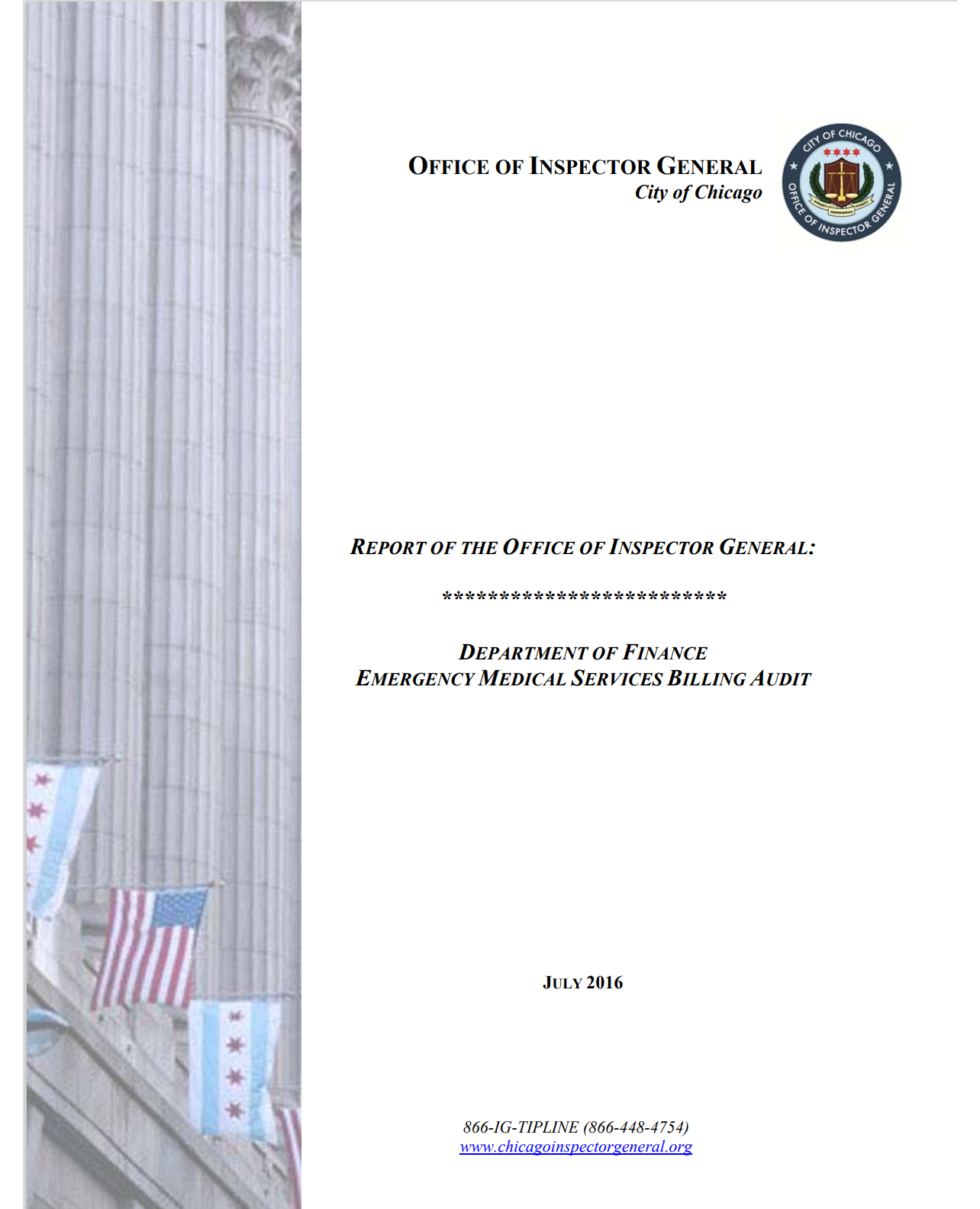Audit of Department of Finance Emergency Medical Services Billing
July 21, 2016
Summary
The City of Chicago Office of Inspector General (OIG) has completed an audit of the Department of Finance’s (DOF) billing for emergency medical services provided by the Chicago Fire Department (CFD).
Executive Summary
The objective of this audit was to determine if DOF billed accurately and completely for emergency medical services through its contract with a billing vendor.
OIG found that:
- DOF billed accurately for emergency ambulance transports but opportunities exist to
- strengthen its compliance practices;
- DOF’s billing for emergency ambulance transports was not complete, resulting in an
estimated $160,799 of missed fee revenue in 2014; - DOF could increase fee revenue by an estimated $696,594 annually if it expanded the
range of City-provided emergency medical services subject to fees; and - DOF could reduce costs by eliminating incentive fees from future contracts or, if the fees are maintained, clarifying how they are awarded.
Subscribe to the OIG Bulletin to get notified about future publications.

